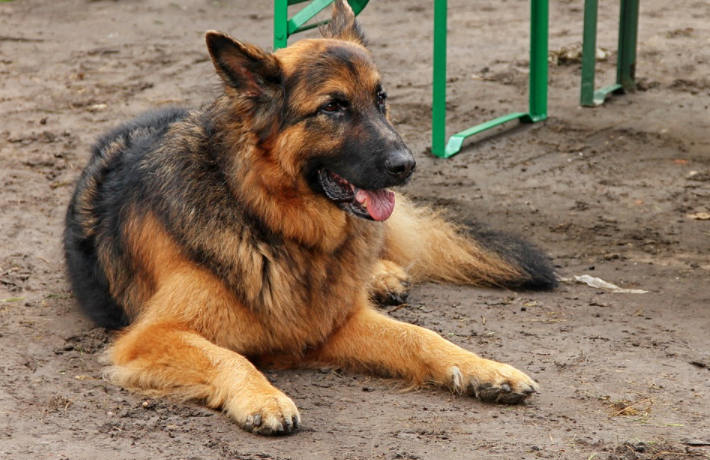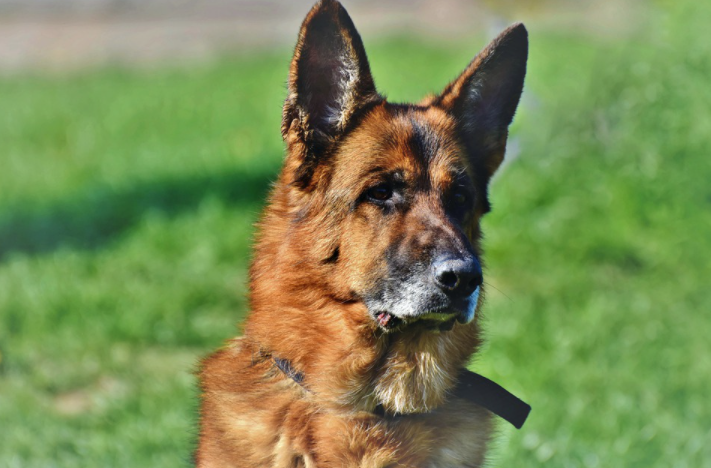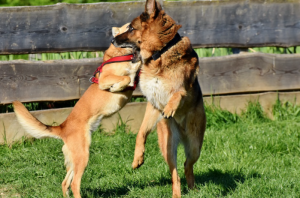
Even though your German Shepherd is aging, it doesn’t mean he can’t continue to live a full and happy life. Like people, dogs begin to develop health issues as they age, affecting their well-being, such as Arthritis. The arthritis management for older dogs is essential when taking care of older German Shepherds. Like humans, the ideal care can help extend a dog’s life and make them healthier and happier, even for decades to come. Now, let’s take a look at how you can take care of older German Shepherds.

Feed Your Dog Special Food for His Need
Today, most people focus on buying special foods for their dogs that provide them with the nutrients they need for healthy development. Not only are older dogs more prone to weight loss, so they need a low-calorie option, but they also need to be fed nutrient-rich foods that keep an aging body invisible and alive. It’s also essential to look for foods that promise to help with joint problems. It is very critical for German Shepherds, who often have joint problems until they become senior dogs. You can opt for a diet plan containing less fat and protein, more sugar or fish oil (omega-3), fewer carbohydrates, and a lower overall caloric intake.
Make Sure Your Dog Gets Exercises
 You can tell your puppy is starting to age when he starts to slow down. Few German shepherds slow down significantly when they reach maturity (we had one who was still running in the yard at thirteen and still running), but many do. If they start spending more time sleeping and less time exercising, that doesn’t mean you have to let them sleep in their pet bed during the day and night. A puppy that is on the move will stay on the move. Therefore, if you diligently leash your old German Shepherd and take him for walks, he will stay busy and consequently fitter for his older years.
You can tell your puppy is starting to age when he starts to slow down. Few German shepherds slow down significantly when they reach maturity (we had one who was still running in the yard at thirteen and still running), but many do. If they start spending more time sleeping and less time exercising, that doesn’t mean you have to let them sleep in their pet bed during the day and night. A puppy that is on the move will stay on the move. Therefore, if you diligently leash your old German Shepherd and take him for walks, he will stay busy and consequently fitter for his older years.
If you have to reduce the intensity or amount of training, you should still get a number. To protect against the onset of gout and other joint diseases, your pet should get some exercise, such as walking and swimming. Walking is a good way to stay active. Swimming is very good for the joints and building muscle without having a significant impact on the joints. Also, it is important that the senior dog does not jump.
Visit the Vet Regularly
Just like people who need to go to the doctor more often as they age, your aging German Shepherd will likely need to go to the vet more often than when he was younger. Your veterinarian can help you identify problems that may develop, such as joint problems, or help you manage more significant issues, such as kidney and liver problems that many German Shepherds have as they age. It’s also an excellent way to make sure you’re feeding your pet the perfect foods and that they’re getting enough exercise. A veterinarian will be able to help you watch for warning signs of more serious conditions, which means you can nip them in the bud or reduce their impact.
Maintain Your Dog’s Oral Health
If you neglect your pet’s teeth, you can start to see even more intense problems arise, such as heart and digestive issues. Even if your dog resists brushing his teeth, this may be more important as he gets older than if he had been a puppy. It can help prevent acute problems with your dog’s teeth for decades to come.
